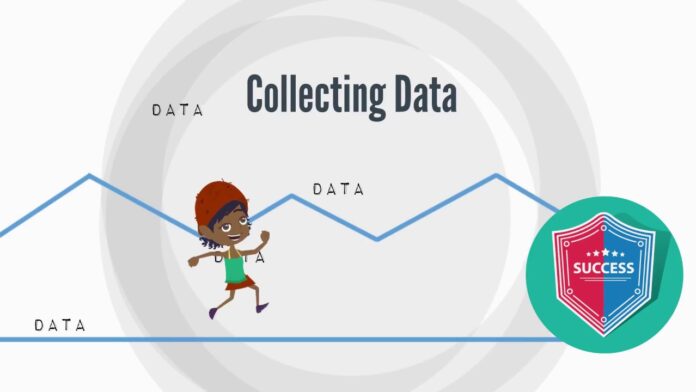How To Prevent Online Companies From Collecting Your Data. Today, data is big business. Companies all over the world, both large and small, are making a ton of money with your data. But many of these are legally acquired. That’s because you are disclosing an incredible amount of personal information, often unintentionally, as you go about enjoying the many benefits the cyberworld has to offer.
Now, if this sounds hard to believe, just search your profile on Nuwber. It’ll retrieve all personal details that you’ve disclosed over the years during some form of online interaction. The digital convergence of modern-day lives certainly comes with many free perks. Not surprisingly, data seem to be the compromise you make in exchange for them.
How To Prevent Online Companies From Collecting Your Data. So, if you’re concerned about your privacy, you need to have your guards up. The good news is, it’s definitely possible to protect most of your data from online companies with the help of a few essential steps. Here’s what you need to know.
Table of Contents
1. Check privacy settings
Each time you place an order on Amazon, it’s watching your every move, so it can track what you are purchasing, cross-promote other products, make suggestions based on previous purchases, and target you with its advertising. When you download that DoorDash app to your phone, it’s collecting your data as well, even as you sleep. And your social media accounts are a gold mine for any business that wants to collect your personal information. In fact, your social media platform is likely collating and sharing your data as we speak. It’s how they make money so you can continue to use their platforms for free.
And chances are you’ve permitted them to track your data without even realizing it. According to Deloitte, a staggering 91% of Americans are signing off terms of service without reading them. If this sounds like you, then it’s time to revisit your privacy settings.
Many reputed businesses allow users to re-examine their privacy policies and adjust privacy features. These will, for example, allow you to prevent companies from tracking and sharing your data. And many social media platforms will even let you switch to private mode and prevent your profile from turning up on Google search results. You can also control who can view your activities and limit your network to those closest to you.
2. Keep a close tab on what you share
As much as businesses are responsible for protecting your data, you also have a duty to share with caution. Excessive sharing on social media, for instance, has become a trend nowadays, risking data privacy and leaving room for data misuse. Every personal photo you share, post you ‘like’, and comment you make could provide valuable insights for companies looking for user information.
But this is not the only way you share personal details. Businesses are using a variety of clever strategies to lure you into disclosing important information, such as your name, email address, age, place of work, and contact details. Have you ever wondered about those newsletters, free courses, and memberships that some companies readily offer? Unfortunately, nothing comes free in the business world. You’re paying for those freebies with your personal data.
The same goes for free apps. While offering you complementary services, they’re getting access to your location, call logs, contact lists, and image galleries. Now, all that could be worth much more than the services they are providing you.
So, the next time you plan on sharing your personal details, think twice. Even something as simple as an email address can go a long way and could get added to a database built halfway across the planet.
3. Delete unwanted accounts
Today, you can hardly find an online service that doesn’t require you to sign up. Whether you want to purchase groceries, watch a movie, or get the latest news, you’re likely prompted to set up an account.
According to a NordPass study, an average person has 70-80 accounts with passwords. Now, that’s an overwhelming number by any measure. Many people have a reckless attitude when it comes to signing up for accounts. And they likely sign up with several companies for the same service, whether it’s news, entertainment, or shopping. This gets worse when it comes to social media. Studies show that an average social media user has 8.3 accounts. This rises to 9.4 among those aged 16-24 years.
The problem is, each time you open an account, you’re divulging personal information. And this data will not stop in the hands of one business. It’s likely shared among hundreds of other companies. So, minimizing your accounts to a manageable few by closing down unwanted ones is essential. It’ll let you gain better control over what you share and what’s available for companies to access. It could also protect you against possible hacking attacks.
4. Guard your browser
Did you know that your browser could be silently tracking information as you spend hours online each day? It can store online search queries to make suggestions later on and save your passwords to make life easier the next time you log into an account. As impressive as it may sound, these browser activities could also put you at significant risk in the event of a hacking attack. And it doesn’t stop there. Each time you visit a website, it’s likely placing cookies on your computer. This allows them to track your activities through your browser. It’s how they show you ads and push promotions based on your online behavior.
But your browser can also let you opt out of these. For example, you can turn off website tracking, block ads, switch off location tracking, and delete cookies to prevent companies from following you and accessing your data. You can also prevent your browser from collecting information. For instance, you can delete browsing history and turn off autofill and password saving features.
The bottom line is, proactively taking measures to safeguard your privacy lies in your hands as much as it does on businesses. And you can significantly restrict companies from collecting your information with a few simple steps. How To Prevent Online Companies From Collecting Your Data.





